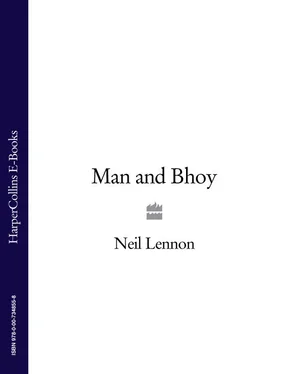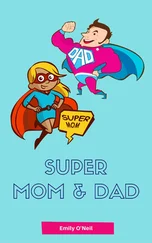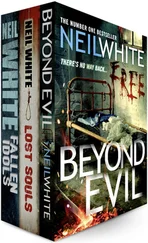
To Alisha and Gallagher
Cover Page
Title Page Man and Bhoy Neil Lennon
Dedication To Alisha and Gallagher
Foreword
CHAPTER ONE: A Troubled Footballer
CHAPTER TWO: A Lurgan Bhoy
CHAPTER THREE: First Steps on the Ladder
CHAPTER FOUR: Joining Dario’s Crewe
CHAPTER FIVE: Out of the Depths
CHAPTER SIX: Moving Up, Moving On
CHAPTER SEVEN: The Flying Foxes
CHAPTER EIGHT: Life is a Rollercoaster
CHAPTER NINE: A Treble in Paradise
CHAPTER TEN: I was in Seville
CHAPTER ELEVEN: Trouble in the Streets
CHAPTER TWELVE: Farewell to the Kings
CHAPTER THIRTEEN: Captain’s Log
Career Statistics
Index
Acknowledgments
Copyright
About the Publisher
I first met Neil Lennon one lovely summer morning not far from his home town of Lurgan in County Armagh. I was on the first rungs of the management ladder, and he was playing for Crewe Alexandra, trying to rebuild a footballing career that had been threatened by a serious back injury sustained as a young kid at Manchester City. We exchanged pleasantries, I wished him good luck with his life, walked away, and thought little more of Neil Lennon and his problems.
I had absolutely no idea that not many years later, when I was managing Leicester City, my assistant manager John Robertson and I would drive up to Stockport, encamp ourselves in some rundown hovel and try to persuade the occupant of the said hovel to come and help us get promotion at Leicester rather than play for Premiership club Coventry City, where he was bound the following day. I think I remember seeing a couple of mice in the corner of the sitting room, both probably deafened by some early Oasis music and wistfully eyeing the last remnants of a tuna sandwich lying on the sofa. John and I refused to leave until the ginger-haired, stockily built young Irishman gave us his word that he would join us. Whether or not the mice finished off that sandwich I just don’t know, but the lad decided to come to Leicester and save my bacon.
For the next four years he bestrode Filbert Street like a colossus, winning tackles, playing the ball, bawling out instructions, cajoling and generally being brilliant. ‘Lenny’, as his team-mates named him, had an immediate and lasting impact, not only in the dressing room but also on the field of play where it really mattered. Every Leicester City fan will testify to his excellence. Certainly, the club itself would not have achieved the success that followed had Neil not been there.
I left Leicester in June 2000, because the call of Celtic was too great to withstand. I immediately put in a big money offer to my former club in an attempt to persuade Neil to join me at Celtic. For various reasons, he didn’t arrive until December that year, playing his first game for the Hoops one bitterly cold evening at Dundee. We scrambled a late winner, but the following day, some unimpressed reporter wanted to know what was all the fuss about Neil Lennon? I think five-and-a-half years on, he’s got the picture. Whatever Neil achieved at Leicester City, he surpassed at his beloved Celtic.
Controversy and Neil seem inextricably linked but I suppose given his background—similar to my own—potential bother in Glasgow is never a million miles away. Just occasionally Neil might not be the innocent party. Nights out with Paul Lambert, Chris Sutton, Alan Thompson, Johann Mjallby and Henrik Larsson did not always pass incident-free. The following day’s inquest would always start with, ‘Were you involved in any way, Lenny?’ ‘Absolutely not, gaffer!’ was usually followed by ‘Well, it wasn’t all my fault…’ It was very sad, however, that death threats prevented him playing more football for Northern Ireland, for whom he did so well.
And now we have had another great season for Neil Lennon, as captain no less. I am genuinely delighted for him, as he is an amazing character and a great, great player—that is stated with almost a decade of knowledge of the man. I also have great regard for his parents, Gerry and Ursula, and I’m sure, like most parents, that they are proud of their boy—almost all of the time!
He has been one of the best footballers I have known, let alone worked with. His ability is unquestioned, but he also possesses something quite rare in human beings—great courage. That is why I hold him in such high esteem.
We have both been part of Celtic Football Club for a brief but memorable time in the club’s long history, and we have worked together for a decent period of our lives. Which is why I can say that Neil Lennon is a pretty special man and bhoy.
I wish him all the best with this book and his life to come.
Martin O’Neill
CHAPTER ONE A Troubled Footballer
The telephone call which changed my life was not even made to me.
It was late in the afternoon of 21 August 2002, when ‘he’ called the BBC’s office at Ormeau Avenue in Belfast. He didn’t say his name—they never do—but left enough hints as to his background. His message was brief and to the point. As it was recounted to me, the call went something like this…
’This is the LVF. If Neil Lennon takes the field tonight he will get seriously hurt.’
LVF stands for Loyalist Volunteer Force, one of the more extreme terrorist groups in Northern Ireland at that time. They battled in their own way for what they perceived to be the Protestant and Unionist cause. I, on the other hand, was a Roman Catholic from Lurgan in County Armagh, and to them I was guilty of a terrible crime—I played for Glasgow Celtic, the club which, despite being non-sectarian since its foundation, is seen as a totem of Irish Catholic nationalism.
It didn’t matter to the caller that I had lived away from Northern Ireland for fourteen years. He didn’t know that my family was not associated in any way with political or sectarian groups. My three sisters and I had been brought up with ‘the Troubles’ all around, but hadn’t lost a relative. We were always lectured by our parents that we should avoid being caught up in the madness that had besmirched our country over four decades.
It only mattered to the caller that, for the first time, a Roman Catholic who also played for Celtic would captain Northern Ireland in Belfast that night. It was a ‘friendly’ match against Cyprus to prepare both sides for the forthcoming qualifying matches for the European Championships. There was nothing remotely friendly in what the caller said.
They say a week is a long time in politics. Well, let me tell you that two hours can be a lifetime in football, and eighteen months can seem an eternity. For the seeds of what happened that night in Belfast were laid on the evening of 28 February 2001, with an event that made headlines in newspapers in Britain, Ireland and further afield.
That was the first time I played for Northern Ireland after joining Celtic, in a friendly match against Norway at Windsor Park. Geography is vitally important in my country, so you should know that the crumbling old stadium is in the heart of East Belfast and is home to Linfield FC, a club traditionally supported by the Protestant and Unionist section of Northern Irish society who predominate in that area.
The events of that night didn’t come as a complete surprise to me. When I signed for Celtic a few months earlier I had known that it was highly probable that when I turned out for Northern Ireland I would get some stick and maybe a bit of hassle here and there. It had happened to Celtic players capped by Northern Ireland in the past, such as Anton Rogan and Allan McKnight. A captain of Celtic had actually led Northern Ireland in the past—the late Bertie Peacock, who played thirty-one times for his country and went on to manage the national side, in the fifties and sixties. But he was a Protestant in an era when there was rather more respect around.
Читать дальше












